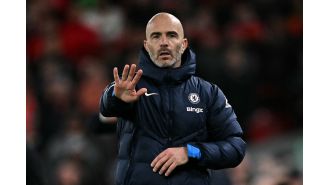A guide for Black Americans on what types of insurance they should consider to protect themselves.
Life insurance is crucial for Black communities.
June 18th 2024.

As we scroll through our Facebook feeds each month, it's not uncommon to come across a GoFundMe funeral campaign. These fundraisers, organized by everyday people, aim to provide financial relief for families who have lost a loved one. While the generosity and compassion behind these campaigns is heartwarming, the fact that they are needed so frequently during a time of immense grief highlights a larger issue within Black communities: the lack of life insurance coverage.
According to Omari Aarons-Martin, the executive director and chief operating officer of the National African American Insurance Association, the Black community is chronically underinsured. Many families are not having conversations about life insurance policies until it's too late, leaving them without the financial support they need during a difficult time. Aarons-Martin stresses the importance of getting life insurance policies as soon as one starts a family, ensuring that their loved ones will be covered in case of an unexpected tragedy.
So, what exactly should Black Americans insure and why? According to Ryan L. Smith, the executive vice president of Atlanta Life Insurance Company, insurance is a crucial tool for building a strong financial safety net. It not only protects individuals and their families from unexpected financial hardships, but it also contributes to long-term economic stability and empowerment. However, when it comes to insurance, there is often a trust gap within the Black community towards the insurance and financial services industry.
Aarons-Martin explains that many consumers do not separate insurance from other financial services, and this lack of trust leads to a lack of access and education within the community. Studies have shown that the greatest need for life insurance is among households earning less than $50,000 per year, Hispanic Americans, Black Americans, millennials, Gen Z, and women. Additionally, a significant percentage of Black Americans believe that life insurance is only for final expenses, when in reality, it can serve as a valuable tool for income replacement and wealth transfer.
Holly Snyder, the president of Nationwide's Life Insurance Business, emphasizes the importance of understanding the true purpose of life insurance. She explains that while no one can ever replace the energy and spirit of a loved one who has passed away, their income can be replaced with proper planning. For example, someone who makes $50,000 a year could provide $1.5 million in income to their household over a 30-year career. This income is crucial for providing basic needs like housing, food, and education, and not having it can put a significant strain on the family. Snyder also notes that term life insurance, especially for younger individuals, is affordable and can provide valuable financial protection.
When it comes to what Black Americans should insure, Smith at Atlanta Life recommends a robust insurance coverage plan that includes life insurance as well as other types of coverage. Life insurance can also serve as a wealth-building and transfer tool, similar to real estate. Smith stresses the importance of starting early and taking advantage of employer-paid and employee-paid/voluntary benefits, which can offer more comprehensive financial protection. Additionally, Snyder at Nationwide highlights the need for long-term care insurance, which should be discussed when an individual turns 40 or when their parent reaches the age of 70.
In conclusion, insurance is a crucial aspect of financial planning that should not be overlooked, especially within the Black community. It serves as a safety net and a tool for building and transferring wealth, and it's important for individuals to start thinking about coverage early on in life. By having open and honest conversations about insurance, we can work towards closing the trust gap and ensuring that future generations are financially protected and empowered.
As we scroll through our Facebook feed, it's not uncommon to come across a GoFundMe campaign for a funeral. These fundraisers, organized by friends and family, provide financial relief for families during a time of immense grief. However, the frequency of these campaigns highlights a larger issue in Black communities: the lack of life insurance.
According to Omari Aarons-Martin, executive director of the National African American Insurance Association, the conversation around life insurance is often overlooked in Black families. This can lead to a devastating discovery when a loved one passes away without any financial protection in place. Aarons-Martin stresses the importance of securing life insurance as soon as possible, especially for new parents.
So, what exactly should Black Americans insure and why? According to Ryan L. Smith, executive vice president of Atlanta Life Insurance Company, insurance can be a valuable tool for building a strong financial safety net. It not only protects individuals and their families from unexpected financial hardships, but it also contributes to long-term economic stability and empowerment.
However, when it comes to insurance, there is a lack of trust within the Black community. Aarons-Martin explains that this mistrust is not limited to the insurance industry, but also extends to the financial services industry as a whole. This results in a lack of access and education when it comes to understanding insurance policies and their benefits.
Research from LIMRA, a life insurance industry organization, shows that the greatest need for life insurance is among households earning less than $50,000 per year, Hispanic Americans, Black Americans, millennials, Gen Z, and women. This further emphasizes the importance of educating and providing access to insurance within the Black community.
Holly Snyder, President of Nationwide's Life Insurance Business, notes that the perception of life insurance can also be a barrier for Black Americans. Many believe that it is only used for final expenses, but in reality, it can provide much-needed income replacement and enable wealth transfer. Snyder stresses the importance of planning ahead and securing a proper life insurance policy to protect loved ones in case of the worst-case scenario.
When considering what to insure, we often think of home, auto, or renter's insurance. However, as Smith from Atlanta Life points out, a robust insurance coverage plan should also include life insurance. This can also serve as a wealth-building and transfer tool, similar to real estate, but with a lower monthly cost.
Employer-paid and employee-paid/voluntary benefits, such as group life insurance, are common forms of life insurance coverage. Supplemental Life Insurance can also provide additional coverage beyond a basic policy. Additionally, Snyder mentions the importance of discussing long-term care insurance, also known as the "40/70 talk," which encourages having this conversation when you are 40 or when your parent reaches the age of 70.
In conclusion, the importance of life insurance in the Black community cannot be overstated. It serves as a vital tool for financial stability and protection, and it's crucial to have open and honest conversations about it within our families. So, let's take the necessary steps to secure our future and provide peace of mind for ourselves and our loved ones.
According to Omari Aarons-Martin, the executive director and chief operating officer of the National African American Insurance Association, the Black community is chronically underinsured. Many families are not having conversations about life insurance policies until it's too late, leaving them without the financial support they need during a difficult time. Aarons-Martin stresses the importance of getting life insurance policies as soon as one starts a family, ensuring that their loved ones will be covered in case of an unexpected tragedy.
So, what exactly should Black Americans insure and why? According to Ryan L. Smith, the executive vice president of Atlanta Life Insurance Company, insurance is a crucial tool for building a strong financial safety net. It not only protects individuals and their families from unexpected financial hardships, but it also contributes to long-term economic stability and empowerment. However, when it comes to insurance, there is often a trust gap within the Black community towards the insurance and financial services industry.
Aarons-Martin explains that many consumers do not separate insurance from other financial services, and this lack of trust leads to a lack of access and education within the community. Studies have shown that the greatest need for life insurance is among households earning less than $50,000 per year, Hispanic Americans, Black Americans, millennials, Gen Z, and women. Additionally, a significant percentage of Black Americans believe that life insurance is only for final expenses, when in reality, it can serve as a valuable tool for income replacement and wealth transfer.
Holly Snyder, the president of Nationwide's Life Insurance Business, emphasizes the importance of understanding the true purpose of life insurance. She explains that while no one can ever replace the energy and spirit of a loved one who has passed away, their income can be replaced with proper planning. For example, someone who makes $50,000 a year could provide $1.5 million in income to their household over a 30-year career. This income is crucial for providing basic needs like housing, food, and education, and not having it can put a significant strain on the family. Snyder also notes that term life insurance, especially for younger individuals, is affordable and can provide valuable financial protection.
When it comes to what Black Americans should insure, Smith at Atlanta Life recommends a robust insurance coverage plan that includes life insurance as well as other types of coverage. Life insurance can also serve as a wealth-building and transfer tool, similar to real estate. Smith stresses the importance of starting early and taking advantage of employer-paid and employee-paid/voluntary benefits, which can offer more comprehensive financial protection. Additionally, Snyder at Nationwide highlights the need for long-term care insurance, which should be discussed when an individual turns 40 or when their parent reaches the age of 70.
In conclusion, insurance is a crucial aspect of financial planning that should not be overlooked, especially within the Black community. It serves as a safety net and a tool for building and transferring wealth, and it's important for individuals to start thinking about coverage early on in life. By having open and honest conversations about insurance, we can work towards closing the trust gap and ensuring that future generations are financially protected and empowered.
As we scroll through our Facebook feed, it's not uncommon to come across a GoFundMe campaign for a funeral. These fundraisers, organized by friends and family, provide financial relief for families during a time of immense grief. However, the frequency of these campaigns highlights a larger issue in Black communities: the lack of life insurance.
According to Omari Aarons-Martin, executive director of the National African American Insurance Association, the conversation around life insurance is often overlooked in Black families. This can lead to a devastating discovery when a loved one passes away without any financial protection in place. Aarons-Martin stresses the importance of securing life insurance as soon as possible, especially for new parents.
So, what exactly should Black Americans insure and why? According to Ryan L. Smith, executive vice president of Atlanta Life Insurance Company, insurance can be a valuable tool for building a strong financial safety net. It not only protects individuals and their families from unexpected financial hardships, but it also contributes to long-term economic stability and empowerment.
However, when it comes to insurance, there is a lack of trust within the Black community. Aarons-Martin explains that this mistrust is not limited to the insurance industry, but also extends to the financial services industry as a whole. This results in a lack of access and education when it comes to understanding insurance policies and their benefits.
Research from LIMRA, a life insurance industry organization, shows that the greatest need for life insurance is among households earning less than $50,000 per year, Hispanic Americans, Black Americans, millennials, Gen Z, and women. This further emphasizes the importance of educating and providing access to insurance within the Black community.
Holly Snyder, President of Nationwide's Life Insurance Business, notes that the perception of life insurance can also be a barrier for Black Americans. Many believe that it is only used for final expenses, but in reality, it can provide much-needed income replacement and enable wealth transfer. Snyder stresses the importance of planning ahead and securing a proper life insurance policy to protect loved ones in case of the worst-case scenario.
When considering what to insure, we often think of home, auto, or renter's insurance. However, as Smith from Atlanta Life points out, a robust insurance coverage plan should also include life insurance. This can also serve as a wealth-building and transfer tool, similar to real estate, but with a lower monthly cost.
Employer-paid and employee-paid/voluntary benefits, such as group life insurance, are common forms of life insurance coverage. Supplemental Life Insurance can also provide additional coverage beyond a basic policy. Additionally, Snyder mentions the importance of discussing long-term care insurance, also known as the "40/70 talk," which encourages having this conversation when you are 40 or when your parent reaches the age of 70.
In conclusion, the importance of life insurance in the Black community cannot be overstated. It serves as a vital tool for financial stability and protection, and it's crucial to have open and honest conversations about it within our families. So, let's take the necessary steps to secure our future and provide peace of mind for ourselves and our loved ones.
[This article has been trending online recently and has been generated with AI. Your feed is customized.]
[Generative AI is experimental.]
0
0
Submit Comment





